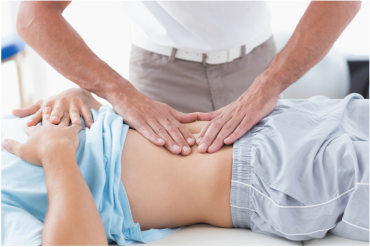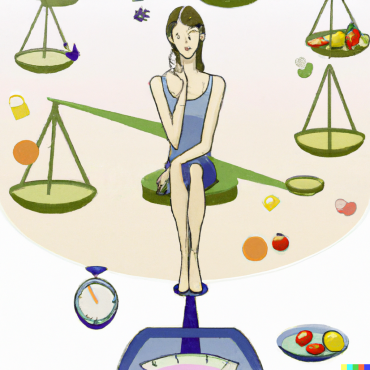So, how much do you really know about constipation?
A condition that negatively impacts the lives of individuals across the globe, this quite common digestive problem can be caused by a range of issues. With that said, it is also a relatively misunderstood issue, with many individuals in the general population having little understanding of its causes and, more importantly, how to effectively handle constipation symptoms if they arise.
With all of that in mind, let’s delve into the what, whys and hows of constipation!
What is Constipation?
In short, constipation means having difficulty passing stools. It is very common, with approximately 15-20% of people suffering from it at some point in their lives, including children. It can be a short term issue, or for some people it can be an ongoing problem. When constipation is a long-term issue, it is generally referred to as chronic constipation.
Constipation occurs when bowel movements are difficult to pass or less frequent than usual (2 or fewer bowel movements per week). The normal frequency of bowel motions can vary between individuals from 3 times per day to 3 times per week.
Constipation is often a relatively minor problem, but it can cause a great deal of pain and discomfort, quickly affecting the quality of life of people suffering from it.

Symptoms of constipation
Constipation symptoms include:
- Two or fewer bowel motions per week
- Hard, lumpy, dry stools
- Abdominal and/or rectal pain when going to the toilet
- Straining to pass a motion
- Feeling of incomplete evacuation
What are some common causes of constipation?
For an otherwise healthy adult, the most common causes of constipation include a change in routine, not enough fibre in the daily diet, not enough fluids and lack of exercise.
Certain medications and medical conditions can also lead to constipation.
For children, ignoring the urge to go is one of the more common causes of constipation.
General causes – Diet or lifestyle-related causes of constipation
For those that are looking to relieve the discomfort and other issues associated with constipation symptoms, there are a variety of options to try. Depending on the root cause of your constipation, however, some of these options will be more effective for some than others. With that said, the majority of these lifestyle changes are beneficial for overall wellness, and will likely have positive effects if addressed, regardless.
Factors that can affect bowel movements include:
A change in routine
As normal bowel motions depend on the regular and rhythmic contraction of the bowels, the body’s internal ‘clock’ can be disrupted with changes in routine. People like shift workers, travellers, or new nursing home residents may be affected by this factor.
Inadequate amounts of fibre in the diet
Fibre adds bulk to the faeces, making it more easily pushed along the digestive tract.
Insufficient fluid intake or dehydration
Adequate water intake is important to keep the bowel contents soft and easy to pass. Constipation can occur with a high-fibre diet if not enough water is consumed. However, water itself is not a laxative, and excess water will simply be passed out in the urine.
Lack of physical activity
Living a sedentary lifestyle can also contribute to constipation. People who are restricted in movement (e.g. disability) are more prone to experience higher rates of constipation.
A tendency to ‘put off’ going to the toilet
Ignoring the urge to go means that more water will be extracted from the stool, making them more difficult to pass. Regularly ignoring this urge may make the body less sensitive to normal signals to go to the toilet making the situation worse. This issue is more common in children.
Other causes – medications or medical conditions
Medications
Constipation can be caused by some medications. Ask your pharmacist or doctor for advice, particularly if you become constipated shortly after starting a new medication.
Pregnancy
Constipation is common during pregnancy, especially during the 1st and 2nd trimesters. Pregnancy hormones act to relax the muscles and slow the transit time of food in the gut.
Other medical conditions
Certain medical conditions may also cause or worsen constipation. Ask your doctor for advice.
If you are constipated, you should tell your healthcare professional what other medications you are taking and what other medical conditions you have so that they can offer the best advice for you.
Treatment options
Dietary and lifestyle changes such as increasing fibre, fluid intake, and exercise are beneficial.
An osmotic laxative, such as OSMOLAX Relief, may be considered to help people with constipation.
OSMOLAX Relief helps provide effective relief of constipation in adults and children from 4 years of age. OSMOLAX Relief is clinically proven to help restore the body’s natural rhythm. It works with the power of water to help hydrate and soften the stool for a comfortable and more controlled relief. Just remember to always read the label of such medications and only use them as directed.
For those currently suffering from constipation, whilst the information provided in this article should give you some excellent ideas and insights into causes and potential treatments, it’s vital that you see a doctor or healthcare professional if problems persist. A healthy gut is a fantastic first step toward better quality of life, so always ensure that symptoms and changes in your usual bowel movements are addressed quickly to avoid future issues.
Just remember to always read the label, use only as directed, and if symptoms persist, see your healthcare professional.

























































Comments